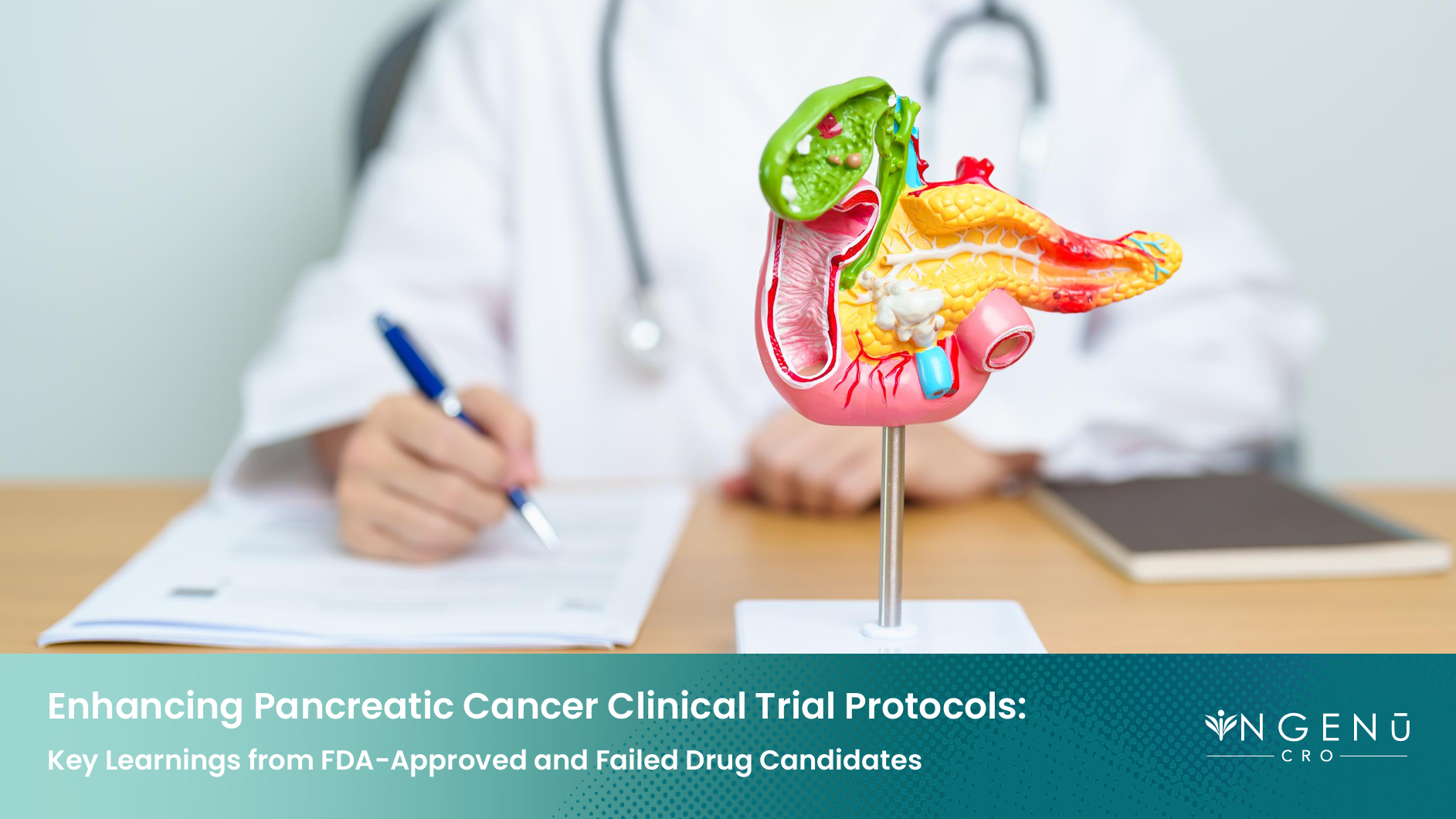Download our whitepaper,
"Enhancing Pancreatic Cancer Clinical Trial Protocols: Key Learnings from FDA-Approved and Failed Drug Candidates"

What's Inside:
- Key FDA-Approved Pivotal Endpoints for Pancreatic Cancer Clinical Trials.
- Optimizing Recruitment with Adaptive Trial Designs for Pancreatic Cancer.
- Comprehensive Analysis of FDA-Approved Pancreatic Cancer Drugs.
- How Diagnostic Criteria for Pancreatic Cancer Have Evolved and Impact Research.
- Overcoming Common Pitfalls in Pancreatic Cancer Clinical Trials.
- And additional insights to drive your trial's success.
Access your complimentary whitepaper today:
Pancreatic Cancer
Pancreatic cancer is a highly aggressive malignancy originating in the pancreas, a gland located behind the stomach responsible for endocrine and exocrine functions.
Our whitepaper provides a comprehensive examination of pancreatic cancer, a highly aggressive malignancy with one of the lowest survival rates among major cancers. It explores the epidemiology, underlying biological, psychological, and environmental factors, and the evolution of diagnostic and treatment approaches for this challenging disease.
Key topics include an overview of pancreatic cancer's prevalence and trends, advancements in diagnostic technologies, and the current landscape of FDA-approved therapies and ongoing clinical trials. Additionally, the paper addresses pivotal clinical endpoints, challenges in drug development, and strategies to improve the efficacy and success of treatment options. Through a detailed analysis of historical progress and emerging innovations, this whitepaper aims to inform and guide stakeholders in the ongoing efforts to improve patient outcomes in pancreatic cancer.
At iNGENū, we are dedicated to advancing the understanding and treatment of Pancreatic Cancer. Through cutting-edge research and a patient-centered approach, our mission is to deliver innovative solutions that improve the lives of individuals and families impacted.
Pancreatic Cancer is the
7th
leading cause of cancer-related deaths worldwide
Cases are expected to grow by
15%
between 2023-2033
Approximately
495,773
new cases annually
Our clinical team has over
120
years of combined clinical trial experience